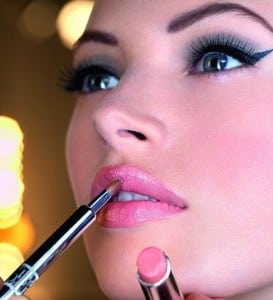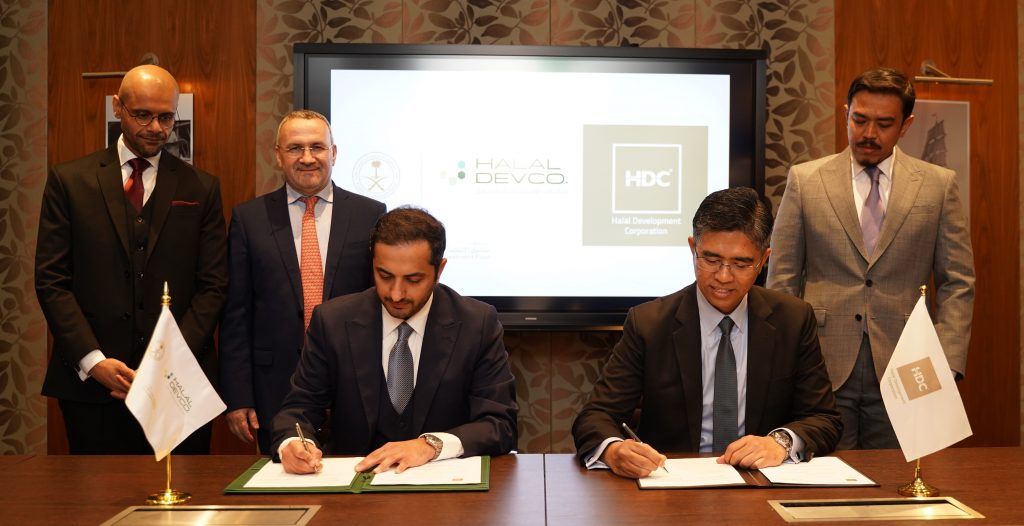By Ankita, Khaleej Times
Halal cosmetics are all set to bring a sizeable shift in the lifestyle of the fashionistas in the country. Range of ‘halal’ cosmetics is perceived as the fresh trend in the beauty industry as demand for the products free of alcohol, pork and animal enzymes is increasing all over the world, including the Middle East.
What is ‘halal’ make-up?
In Islam, ‘Halal’ means anything that is lawful and allowed. Islam prohibits consumption of  alcohol, pork and blood. Generally, make-up products contain these ingredients, which are considered forbidden in Islam. Halal cosmetics range from skincare products to lipsticks, mascara, eye liners and blushers, which are free of pork, human or animal enzyme and alcohol.
alcohol, pork and blood. Generally, make-up products contain these ingredients, which are considered forbidden in Islam. Halal cosmetics range from skincare products to lipsticks, mascara, eye liners and blushers, which are free of pork, human or animal enzyme and alcohol.
Jaina, Dubai-based hairstylist and fashion stylist, thinks it’s a great idea and concept that everyone, especially who prefer to apply make-up free of animal enzymes, would love. She expresses the need for big brands to come up with this. “People are too brand-conscious here. If big brands will come up with halal products, it will work for sure.”
Vandana Jain, a consumer, agrees: “I am strictly against the idea of cosmetics containing animal enzymes. If possible, I would love to resort to more ‘organic’ ways of decking up my skin and halal cosmetics are one of them.”
How big is the market?
The variety of halal products is limited and there are not many players in the market. Iba Halal Care, a small Indian brand, is into selling eco-friendly and halal fragrances, body lotions and lipsticks. Amara Cosmetics, the first halal-certified company founded in North America offers a huge range of lip-glosses, foundations, compacts and it is quite popular among Muslim women. The Halal Cosmetics Company, a UK brand, has entered the UAE market and is going to bring the entire skincare range to the Middle East. NovoCeutix and MGT group has tied up to promote and distribute the products for Halal Cosmetics Company in the UAE.
“To commemorate the launch, we decided to launch the Halal skincare products during the holy month of Ramadan in the UAE and the products are being showcased in the Ramadan Night Market,” says MGT Group CEO Ashok Puri.
“We understand the importance of halal to Muslims and therefore to cater to their needs, we have come up with an idea of bringing these products to the country,” states Lokesh Thadani, Director of NovoCeutix.
How trending is it?
This exciting beauty segment is a growing trend that appeals not only to Muslims but crosses over also to a much wider consumer circle. In 2015, the global spend on halal cosmetics was $24.4 billion and it is expected to reach $45 billion by 2020, with a significant proportion of this spend expected within the Middle East.
The availability and accessibility of these products, rising awareness of consumers and benefits of halal products lead to the market expansion. Additionally, because of religious preference in Muslim-populated countries, this range is successful in capturing the big share in the market within a year. In Gulf countries, it is projected to grow at a compound annual growth rate of over 15 per cent during 2015-2020. Still the market is in the infancy but soaring demand for such products suggests that the industry will boom in the coming time.
Malini Ohri, beauty & health expert from Splendour salon, highlights the benefits of halal cosmetics. “Halal products avoid the consumption of alcohol, which is good for the skin. Alcohol dries up the skin and most of the face washes and make-up removers or cleansers contain alcohol. It also speeds the aging process and can cause skin-related issues.”


